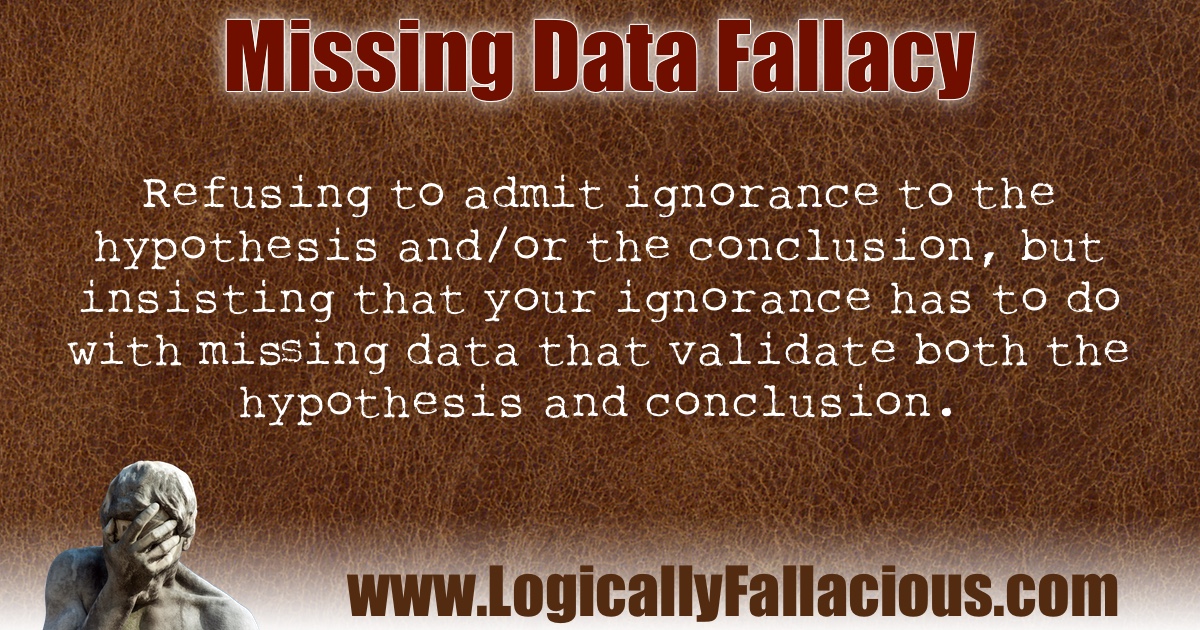(also known as: missing information fallacy)
Description: Refusing to admit ignorance to the hypothesis and/or the conclusion, but insisting that your ignorance has to do with missing data that validate both the hypothesis and conclusion.
Logical Form:
Hypothesis H is put forward.
Fatal Flaw F is pointed out.
Rather than change the hypothesis to match the data, it is simply assumed that there must be data missing that will eliminate flaw F.
Example #1:
Jeremy: Drinking Diet Cosie Cola will result in the reversal of male-pattern baldness.
Rick: This has never been established scientifically.
Jeremy: That is because it must be mixed with another ingredient.
Rick: Which is...?
Jeremy: They haven’t found it yet.
Explanation: Jeremy is assuming the theory is correct based on some unknown missing data (the secret ingredient), rather than admitting that the whole theory is invalid.
Example #2:
Gil: Scientists have no idea what the appendix is for because they refuse to accept that its function is the source of psychic powers in humans that we have forgotten how to use.
John: Scientists actually now know that the appendix serves an important role in the fetus and in young adults. This is well documented and empirically tested.
Gil: This does not mean that it still is not the source of psychic powers—this just has not been tested yet.
Explanation: In order to protect the hypothesis from error, it is assumed, without evidence that the answer does exist, but is beyond current scientific understanding.
Exception: When the data does exist, especially when it is empirically verified, but you just don't know what it is, it is acceptable to stick with your hypothesis and admit you don’t know the missing data off hand, but you can get it. For example:
John: The Shroud of Turin was found many years back. This is physical proof that Jesus existed.
Gil: You know, John, there is plenty of evidence against the authenticity of this.
John: Yeah? What specifically?
Gil: I honestly don’t know the details off the top of my head, but I can e-mail you when I get home.
Tip: Think of the missing data fallacy like having four cards of a royal flush and a seven of another suit. You don’t have a royal flush; in fact, you have an essentially worthless hand. The difference is, with a full deck of cards, we know that the card to complete the royal flush exists.

This is an original logical fallacy named by the author.